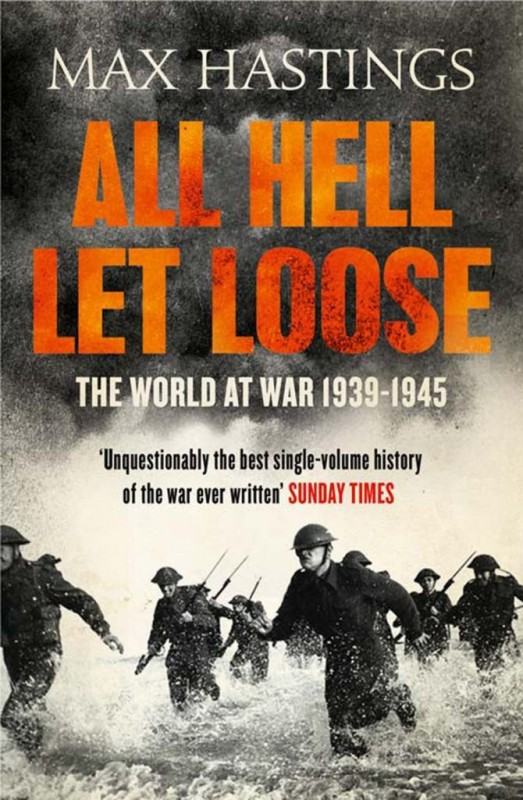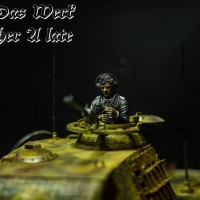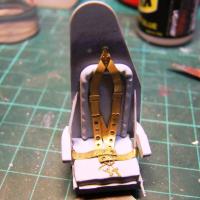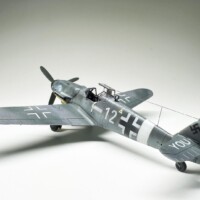Review: A very serious book recommendation
As someone now recognized myself as a military historian, it's easy to say that the military historian who has been my greatest influence is Sir Max Hastings.
In case you missed his book released in Europe as "All Hell Let Loose" and published in the U.S. as "Inferno" let me give a 5-star recommendation. He's been my model for how to write military history. It's an overview of the Second World War like no other.
You can read the best essay on the topic of 'how the war affected those who experienced it" here: http://www.maxhastings.com/assets/All-Hell-Let-Loose-324-360.pdf
The amount of research involved in this is mind-boggling.
Highlyhighlyghighlyghighylghighly recommended.





I read "Armageddon" the Battle for Germany 1944-45 by the same author, which was excellent, so i'll look out for this.
Sir Max has also written 1914: Europe Goes to War, an apt and timely volume, and also The Battle for the Falklands.
Other personal favourites are Sir Antony Beevor's Stalingrad, and D-Day, for those of you who may want to experience the suffocating and bloody swathe of European combat operations set within the objective framework of exemplary research.
I've read a few books by Anthony Beevor, and thought that his Stalingrad and Berlin were among the best. For whatever reason, I found his later work (D-Day) a less compelling read, but that may be because the subject was so familiar, or his writing style changed.
I'll definitely check Mr Hasting's new book.
Yes, there's a compelling claustrophobia in the Berlin volume, which I forgot to include in the listing in the previous post.
I think the detail in the D-Day book offered insights into the minutiae of unit operations that I hadn't seen in many other books, hence my rating it highly.
A good read is "Enemy coast ahead" by Guy Gibson V.C. about the dambusters raid.
N.
I can second the recommendation for "1914", and await--what else?--"1915".
I'm afraid that we're due for a lot of books on the centennial, and at least half of them promise to be horrors. At such a time, Hastings' sane moderation and judgement is doubly welcome. It seems that in Britain the preferred film of choice for showing in schools about the Great War is the final episode of "Blackadder"--doubtless the film most often shown will be "Oh, What A Lovely War".
Off the beaten path, not quite available here, is "The Flower of Battle" by Hugh Cecil, about Great War fiction written by actual veterans. I came to it to read his chapter on Victor Yeates. Cecil has done the groundwork--he explains why the Camel was better for trench-strafing than the SE5--and he's also a professor of literature. He thinks "Winged Victory" is very good as literature; it could have been better had Yeates lived longer and done a proper edit of some material. He also thinks that Yeates was gifted with ironic gallantry, aware of his plight but refusing to surrender to self-pity, and blessed with a loving wife, family and friends. Cecel does that type of insight on all of his subjects, and examines their war service and how it influenced their writing.
I firmly believe that if you read Massey's masterpiece "Dreadnought: Britain, Germany and the Coming of the Great War," and Hastings' "Catastrophe 1914" you will have gotten everything you need to understand how World War I happened.